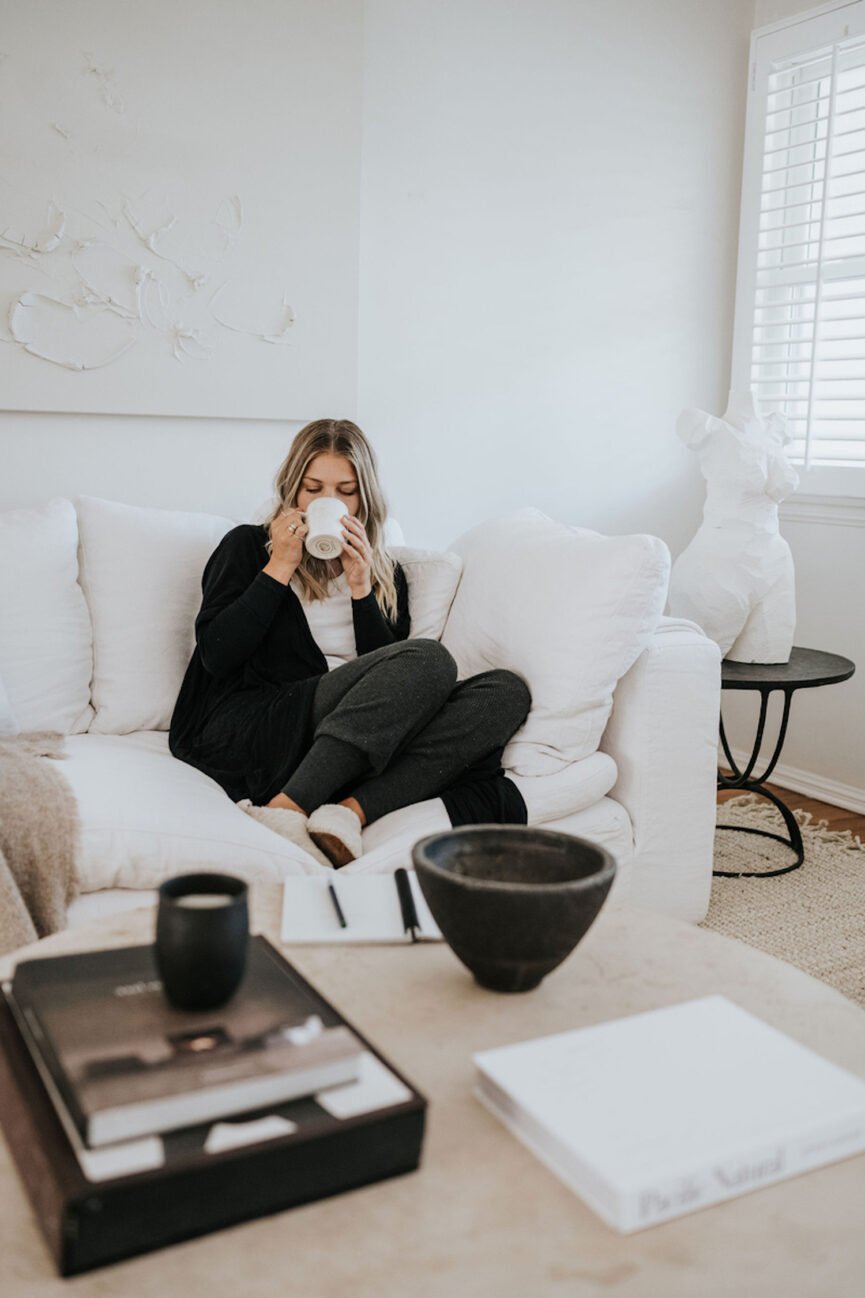[ad_1]
As a woman today, doing things alone in public—whether grabbing coffee, going to the movies, or enjoying a solo dinner—often comes with a cultural stigma. It can feel like you either have to fear solitude or turn it into a bold statement of independence. There’s vulnerability and judgment at both ends of that spectrum. A few years ago, when I found myself living alone for the first time, these societal narratives left me feeling not only alone but also isolated in my experience.
What I didn’t realize at the time was how transformative this chapter would become. Living alone for the first time is a rite of passage for many, but it also brings unfamiliar challenges. From learning how to decipher a utility bill to figuring out what cleaning products actually work, it’s easy to slip into self-criticism. However, instead, I chose to view this season as one of growth and discovery—an opportunity to practice self-compassion and acceptance, even in the awkward, lonely, or uncertain moments.


Kathryn Lee, MHC, Ed.M, M.A
Kathryn Lee is a New York City-based mental health counselor whose work aims to support all people by creating an empathetic, compassionate, and nonjudgmental environment. Her client-centered approach aims to tailor the therapeutic process to each individual, working collaboratively with clients to ensure their perspectives are supported and all their needs are met.
Why Living Alone for the First Time Can Feel So Overwhelming
When I decided to move back across the country after a breakup—selling my car, most of my belongings, and saying goodbye to my cat—I had no clear path forward. But part of me craved the experience of living alone for the first time. I knew it would challenge me and help me reconnect with a sense of inner confidence I’d lost along the way.
Living alone is often tied to significant life transitions: moving out of your parents’ home, leaving a relationship, or relocating to a new city. And while it can be exciting, it’s also a period filled with complex emotions. Financially, emotionally, and mentally, it’s not always easy—but it can be deeply rewarding.
Many people are living alone for the first time if they’ve just moved out of their parent’s home or are leaving a relationship. These can be challenging contexts to move out of. What can make the transition easier?
Expert Advice: How to Navigate Living Alone for the First Time
To help others ease into this new chapter, I spoke with Kathryn Lee, a therapist based in New York City, about how to embrace the ups and downs of living alone for the first time. Her advice is practical, grounding, and a reminder that this season of solitude can actually become a source of empowerment.
1. Create a Sense of Safety and Comfort in Your Space
Your home should feel like your sanctuary. Rearrange furniture, hang artwork, or invest in cozy lighting to build a space that reflects you. When you’re living alone for the first time, creating a sense of safety in your environment can help stabilize an otherwise unfamiliar experience.
2. Establish a Routine
Routines provide structure and comfort. Develop a daily rhythm that feels manageable, whether it’s a morning stretch, an evening walk, or Sunday grocery runs. These small habits can make the transition of living alone for the first time feel less overwhelming.
3. Stay Connected to a Support System
It’s easy to retreat into your own world when you’re living alone, especially if you’re introverted. Schedule regular calls, coffee dates, or video chats. Staying socially connected will help ease feelings of loneliness and remind you that you’re never truly alone.
4. Find Things to Look Forward To
Plan activities that excite you, whether it’s trying a new restaurant, redecorating a corner of your space, or discovering a nearby park. Living alone for the first time offers the freedom to follow your own curiosities.
5. Address Mental Health Proactively
It’s normal for feelings of isolation or overwhelm to surface. Therapy, support groups, or simply talking to trusted friends can help you navigate those emotions in healthy ways.
How to Cope With Loneliness When You’re Living Alone for the First Time
Living alone doesn’t mean you have to feel lonely. Here are a few therapist-recommended strategies to ease those quieter moments:
- Connect with others: Regular calls, texts, and social outings can lift your spirits.
- Adopt a pet: If you’re interested in having a companion around while still living alone, having a furry friend can help ease feelings of isolation.
- Explore your surroundings: Discover new coffee shops, museums, or hiking trails.
- Practice mindfulness: Journaling, meditation, or yoga can help you stay grounded and reconnect with yourself.
Thriving While Living Alone for the First Time
Once you get past the initial discomfort, living alone can become a meaningful opportunity for personal growth. Here are some ways to focus on yourself while still staying in touch with your needs.
- Prioritize self-care: Eat well, stay active, rest, and make your home a reflection of you.
- Build community: Join clubs, volunteer, or connect with like-minded people in your area.
- Work on your relationship with yourself: This is a chance to explore your passions and nurture your inner world.
- Challenge yourself: Try things you’ve always wanted to but felt afraid to do.

How Living Alone for the First Time Can Change You
This experience can profoundly alter your self-perception. You’ll become more self-reliant and develop a deeper awareness of your needs, desires, and boundaries. The challenges of living alone for the first time will help you build resilience, confidence, and the ability to fully trust yourself.
Living alone for the first time isn’t just about adjusting to an empty apartment—it’s about discovering what you’re capable of when you strip away external expectations. It can be one of the most empowering, clarifying, and healing experiences of your life.
This post was last updated on April 27, 2025 to include new insights.
[ad_2]
Source link

